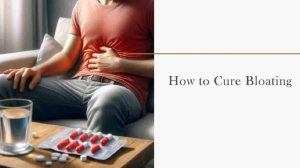
Diarrhea is characterized by an increased frequency of defecation, as well as liquid feces. Even so, it turns out that Watery Bowel Movements is not always a sign of ordinary diarrhea. There are other digestive problems that are also characterized by Watery Bowel Movements.
Watery Bowel Movements conditions are usually accompanied by other symptoms, such as abdominal pain, nausea, until vomiting in certain cases. If you are experiencing these symptoms, you are not necessarily suffering from the regular diarrhea. The definition of diarrhea, according to the WHO (World Health Organization) is when the frequency of liquid defecation reaches three or more times in a day, or the frequency of bowel movements more often than usual.
Read also:
How Often Should You Have A Bowel Movement? 1 or 3 Times A Day?
Watery Bowel Movements Causes
The causes of diarrhea are bacterial infections, viruses, and parasitic organisms within our digestive system. The spread can be of water contaminated by the feces, or the cleanliness of the food is less awake. Bacteria that commonly cause diarrhea are Escherichia coli, Campylobacter, Salmonella, and Shigella.
Apart from being a sign of diarrhea, Watery Bowel Movements are also a symptom or a result of the following conditions.
Lactose intolerance

Lactose intolerance is a digestive problem caused due to the inability of the body to digest lactose due to the lack of lactase enzymes. The lactase enzyme itself is produced by the small intestinal cells named enterocytes. A person who has lactose intolerance will have a Watery Bowel Movements when consuming lactose foods, such as cow’s milk and its derivative products.
Drug Side effects
There are times when the drug causes diarrhea side effects. But this diarrhea is not a regular diarrhea caused by bacteria, but rather as a side effect of the drug being consumed. Some types of medications that trigger diarrhea are antacids that contain magnesium, or more commonly known as ulcer drugs. Certain antibiotics, such as penicillin-type antibiotics, cephalosporins and fluoroquinolone also trigger diarrhea side effects. There is also treatment of cancer that triggers diarrhea.
Viral infections. For example, rotavirus, which is one of the most common causes of diarrhea, especially in children.
12 Other causes
- Diseases associated with the small intestine, large intestine or stomach. For example, in patients with irritable bowel syndrome or Crohn’s disease.
- Inflammation of the gastrointestinal tract.
- Certain diseases of the hormonal system (endocrine), including thyroid disease, diabetes, adrenal glands, and Zollinger-Ellison syndrome.
- Bowel cancer.
- The presence of certain tumors (including carcinoid tumor and pheochromocytoma) can cause diarrhea.
- The formation of a sac in the intestinal wall in Diverticular disease can cause diarrhea, especially if there is an infection and inflammation (diverticulitis).
- Parasites that pollute food and water consumed, causing liquid bowel movements, such as dysentery or amebiasis (Entamoeba infection).
- Partial bowel removal / removal surgery. Short-bowel syndrome is not able to absorb all the substances or nutrients we eat or drink, so it is possible to occur diarrhea.
- Effects after gallbladder surgery. The increase in bile in the colon can cause watery stool (Watery Bowel Movements) or diarrhea.
- Lack of nutrition, the time after a viral infection, decreased immunity is also a factor that can cause a person susceptible to suffering from diarrhea
- Artificial sweeteners (sorbitol and mannitol, artificial sweeteners found in chewing gum or other sugar-free products can cause diarrhea in healthy people)
- Spicy or fatty food.
Watery Bowel Movements Symptoms
Symptoms that usually accompany diarrhea include:
- Liquid or soft stools
- Frequent bowel movements.
- Abdominal pain / Heartburn
- Bloating
- Fever
- Vomiting
- Nausea
- Blood in the Stool.
How To treat Watery Bowel Movements
Treatment for diarrhea
Although it is usually not a serious condition, if you experience liquid defecation, of course it should be treated.
The ways to treat it are:
- Drink sufficient amount of water, to replace the liquid not to be dehydrated. You can also consume a drink containing electrolytes.
- In infants and children, give drinking water more often. Because, diarrhea in children makes the risk of dehydration becomes higher. Let the child break and reduce the activity, so that the child recover quickly. Especially, if liquid defecation is accompanied by fever, nausea and vomiting.
- Avoid eating fatty, and spicy foods. Up to two days after the diarrhea subsides should also avoid spicy food.
- At the time of recovery, avoid exercise that is too heavy because it can cause dehydration.
Although liquid defecation is not necessarily a serious condition, you cannot ignore it if dirt mixed with blood, mucus, accompanied by fever, and cause weight loss. Liquid defecation also needs to be wary if it lasts up to three times a day without enough fluid consumption, or if it occurs more than 3 days, because it poses a risk of dehydration.
Read also:




